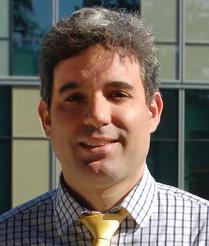Event Date:
Event Location:
- Buchanan 1930
Title: Spherical Factor Analysis for Binary Data: A Look at the Conservative Revolt in the US House of Representatives
Abstract:
Factors models for binary data are extremely common in many social science disciplines. For example, in political science binary factor models are often used to explain voting patterns in deliberative bodies such as the US Congress, leading to an “ideological” ranking of legislators. Binary factor models can be motivated through so-call “spatial” voting models, which posit that legislators have a most preferred policy – their ideal point –, which can be represented as a point in some Euclidean “policy space”. Legislators then vote for/against motions in accordance with the distance between their (latent) preferences and the position of the bill in the same policy space.
In this talk we introduce a novel class of binary factor models derived from spatial voting models in which the policy space corresponds to a non-Euclidean manifold. In particular, we consider embedding legislator’s preferences in the surface of a n-dimensional sphere. The resulting model contains the standard binary Euclidean factor model as a limiting case, and provides a mechanism to operationalize (and extend) the so-called “horseshoe theory” in political science, which postulates that the far-left and far-right are more similar to each other in essentials than either are to the political center. The performance of the model is illustrated using voting data from recent US Congresses. In particular, we show that voting patterns for the 113th US House of Representatives are better explained by a circular factor model than by either a one- or a two-dimensional Euclidean model, and that the circular model yields a ranking of legislators more in accord with expert’s expectations.
Bio:
Abel Rodriguez is a Professor of Statistics and Associate Dean for Graduate Affairs at the Baskin School of Engineering at the University of California, Santa Cruz. He is also the Associate Director of the Center for Data, Discovery and Decisions (D3) at UC Santa Cruz. He develops statistical methods for complex problems in biology, social sciences and engineering. His research interests include Bayesian statistics and machine learning, specially nonparametric methods, spatial temporal models, network analysis and extreme value theory.

